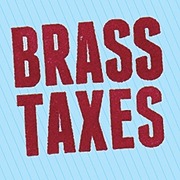Filing and Paying Your Taxes
What are IRS payment plans, and how much do they cost?
If you are not able to pay taxes immediately, you have options.
Updated 1 week ago
If you know that you can't pay your taxes right away for whatever reason, then you should consider an IRS payment plan. These plans accrue interest but at much lower rates than most credit cards. If your situation is a choice between living on credit or putting your taxes into installments, then the IRS is probably the best place to have your debt.
The IRS offers different payment plan options. Here's a bit of information about each, which will help you determine the best route to go:
Short-Term Payment Plan
A short-term payment plan doesn't cost anything to set up, but it does require the bill to be paid in 120 days from the filing deadline (April 15). If you file on time, interest charges start after April 15th at about 7% over the course of a year (but will be higher if you file late). After applying for a short-term payment plan, you can pay the amount owed directly from your checking or savings account (Direct Pay) or by check, money order, or debit/credit card.
Long-Term Payment Plan
A long-term payment plan costs $31 to set up online, although you might be able to get that waived if you qualify for low-income taxpayer status. This option gives you up to 6 years from the filing deadline (April 15) to pay, and you will have monthly payments that are paid through direct debit, so funds will automatically be withdrawn from your checking account each month. Interest starts after April 15th at about 7% over the course of a year (but will be higher if you file late).
If You Already Have an Existing Payment Plan
If you already have a payment plan from a prior year's tax bill, you can still set up a payment plan for a new tax year. The IRS or state will add the new balance to your existing plan and update the monthly payment amount—in other words, you'll only ever have one actual payment plan with the IRS or the state, but it can incorporate multiple years. If you have an existing payment plan, you'll have to add the new balance yourself, either online or by calling the federal or state government to add the new balance. Your current payment plan will not automatically update with the new balance.
A Few Additional Notes on Payment Plans
If you know you are going to owe taxes (or think you are going to owe), it is still beneficial to file on time (or file an extension), even if you can't pay right away.
The New York penalty + interest rate is higher than the federal rate. If you are able to, our recommendation is to pay the NY balance off and set up a payment plan for the federal balance.
Another option is to not enter a payment plan but pay on your own terms. You will receive letters for the amounts owed, but the interest charges are the same.
Your IRS account will need to update with your current balance in order for you to set up a payment plan. The IRS can be extremely slow to update your account. You can always make payments on your own if you're not yet able to set up a formal payment plan.
The interest rate varies, but it's typically around 7% over the course of a year.
To set up a payment plan with the IRS, apply here.
Questions? Email us at info@brasstaxes.com

